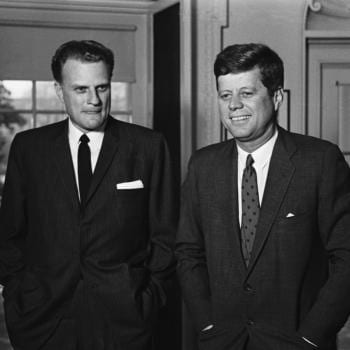Thomas Chatterton Williams chastises Ta-Nehisi Coates for ripping Kanye West. First Coates:
When Jackson sang and danced, when West samples or rhymes, they are tapping into a power formed under all the killing, all the beatings, all the rape and plunder that made America. The gift can never wholly belong to a singular artist, free of expectation and scrutiny, because the gift is no more solely theirs than the suffering that produced it. Michael Jackson did not invent the moonwalk. When West raps, “And I basically know now, we get racially profiled / Cuffed up and hosed down, pimped up and ho’d down,” the we is instructive.
What Kanye West seeks is what Michael Jackson sought—liberation from the dictates of that we.
Then Williams:
Is Coates seriously arguing, as he seems to be, that the desire for “liberation from the dictates of that we”—or any we, any tribe!—is ipso facto a kind of moral violation? He claims for himself, here and elsewhere, a Mullah-like authority to assert communal possession of other people he deems to be a part of his community. And when those people deviate from what Coates pronounces to be the acceptable group perspective—“West calls his struggle the right to be a ‘free thinker,’ and he is, indeed, championing a kind of freedom—a white freedom”—he claims for himself the right, not merely to refute a person’s arguments but to deracinate them entirely.
More chilling than the essay has been the rapturous response it has generated among many white liberals who seem somehow too eager to reinforce its dire racial proscriptions. It is undeniable that West has gotten an astonishing amount wrong, but one thing he gets just right is this: Too many people of all persuasions act as though there are views, based on one’s perceived identity alone, that others must share. No matter what else might be said, that is an extraordinarily warped view of freedom.
What does this have to do with France? Well, the French government does not acknowledge race or ethnicity in its policies and for a decent reason:
Unlike many other West European countries, and very much unlike English-speaking immigrant societies such as the United States, Canada or Australia, France has intentionally avoided implementing “race-conscious” policies. There are no public policies in France that target benefits or confer recognition on groups defined as races. For many Frenchmen, the very term race sends a shiver running down their spines, since it tends to recall the atrocities of Nazi Germany and the complicity of France’s Vichy regime in deporting Jews to concentration camps. Race is such a taboo term that a 1978 law specifically banned the collection and computerized storage of race-based data without the express consent of the interviewees or a waiver by a state committee. France therefore collects no census or other data on the race (or ethnicity) of its citizens. . . .
France has maintained its official color-blind approach to race relations in spite of growing numbers of ethnic minorities on its territory and in contrast to other European countries facing similar demographic shifts. In part, this tendency can be explained by the Revolutionary and Republican traditions of treating all citizens equally before the law. In part, this can be accounted for by the memory of France’s Vichy history and by the fears among the mainstream political class of a revival of far-right politics as embodied by the National Front.
Another reason for American exceptionalism. Identifying people by race has implications for Europe that it does not for the United States, except of course that Jim Crow was a policy that relied on racial identity. Martin Luther King Jr.’s hope for “content of character” prevailing over “color of skin” may have actually shared more with post-Vichy France than pre-Civil Rights America.












